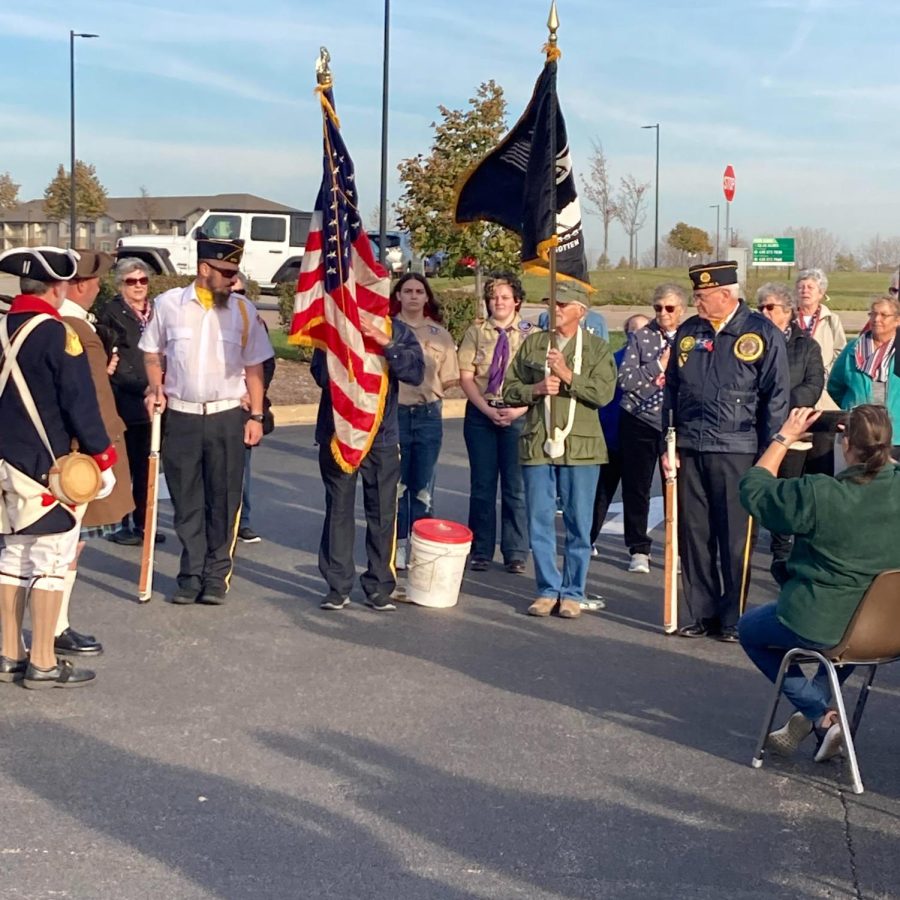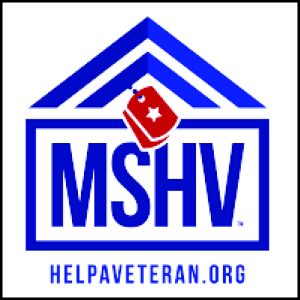The members of freedom
Veterans show pride with their American flags outside of the Culver’s facility.
November 14, 2021
Passing in the halls, the names stand out. James Obrian, Henry Oswald, Gray Feilding, thinking of what they went through. The suffering that they shared. There is a kid who reads the same names, and says, “that’s my grandfather,” out loud. The nameplate reads Patrik Macland, to anyone who passes by, it seems like a name. But to many who have been nearly hit from a bullet fired by a sniper rifle, and the explosives from grenades, with continuous yelling, and sometimes confusion, they are more than names. They were people.
The example above is just an example of what certain , but shares an experience of what it feels to be in books, but not as important as Abraham Lincoln, president during the civil war, who issued the document that changed history for many on the front lines. But instead, The battlefield of normandy, where countless have been killed. Fighting for a statement of peace, and for stopping all war after.
The examples both show what people went through, but only one shows the reason for fighting. And it’s not about stopping war, it’s about changing history. While many might see an old man in a uniform, only few see someone who went through struggle, sacrifice, and pain, only to have little change and for violence to continue.
The Boy Scouts of troops 151 and 2019 held a ceremony to support, and show appreciation of these “freedom fighters” and veterans of wars: Vietnam, Iraq, Afghanistan, etc. hosted by Culvers.
“It’s important, especially for the younger generation, to listen to their memories. We really don’t take time to sit and learn what really went on,” said Melissa Davis, the scoutmaster of troop 2019. “Some of you are still in high school at 17. Some of these gentlemen were on the battlefields at 17 while some of these women were back at home supporting them. You have to remember the past so that we don’t do it again.”
Another man, Don Smolinski, shared his experience in the reserve forces in Chicago and active duty in Fort Hood TX.
“We would train National Guard and Reserve units for their deployments, and we did training in various posts around the country. I managed to visit during my duties there and so retired out of the Army in 2005,” Smolinski said “I was not in combat fortunately because no one really wants to be. But a lot of soldiers that I served with in the reserves had been in combat in Vietnam, Desert Storm, Iraq, Afghanistan, a lot of those soldiers I served with were in combat.”
To sum up what It really is to be on the front lines, where at any given moment something can happen, even if it’s just drills, or training, it can always give a certain escalation to the area, and be a spot where people see, or think the last thing they ever will.
Stopping wars is what these men and women did, but did they really stop them? Wars are still raging worse than ever, and new ones start every day. If anything, these “freedom fighters” are more of “safety police,” keeping an area temporarily secured, or protected until it happens again.



